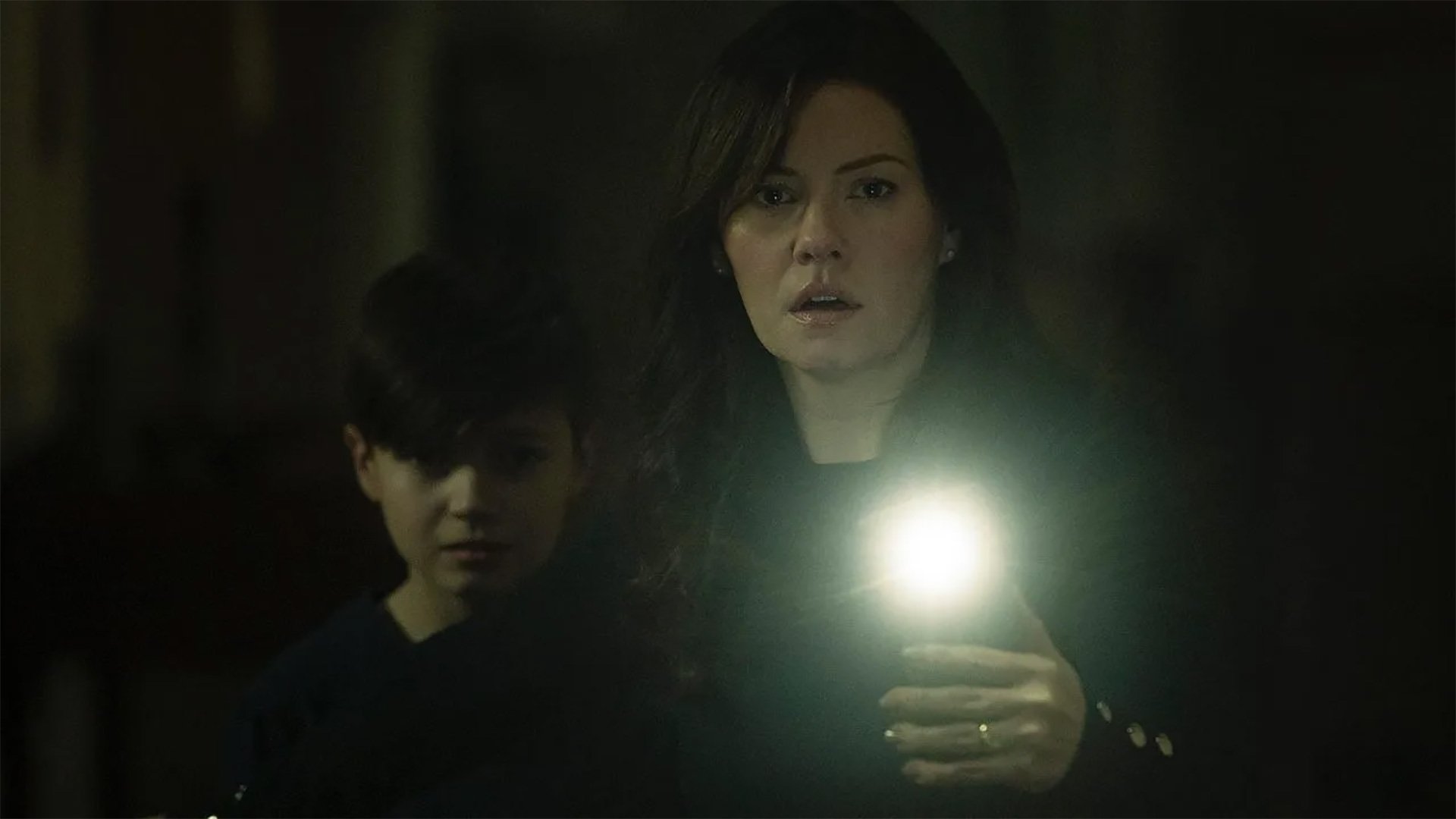The Cellar turns a terrific horror short into a longer—but not better—film
Irish Filmmaker Brendan Muldowney adapts his own short, The Ten Steps, into a more expansive but undercooked feature

It’s no easy feat to turn a short film into a feature length narrative, but that’s exactly what Irish filmmaker Brendan Muldowney did with The Cellar, an adaptation of his own eerie ten-minute short The Ten Steps (2004). Bringing in elements of demonology and numerology to explain the strange case of a teenage girl’s disappearance in her cellar, the writer-director builds out his mythology from a simple premise. But by expanding its scope, and its length, what made the short film so effective—the universality of a concept that reaches back to our primitive fears of the dark—Muldowney trades for a baggy foray into paranormal activity bookended by two strong short films.
In The Ten Steps, a teen babysitting her brother calls her parents when the power shuts off in their new house. They tell her to check the power box in the basement, a location that triggers her anxiety. Her father instructs her to count each step as she goes down, focusing on the numbers rather than the dark. But the steps don’t stop as they’re supposed to at ten, and the girl’s voice continues counting higher and higher in the phone as she descends into an unknown depth while her parents listen on in horror. Muldowney remakes the short nearly beat for beat in The Cellar, but adds a preamble to establish the family at the center of the story.
The Woods family take up residence in an old house in Ireland, one that has a long, and of course, supernatural history. Ellie (Abby Fitz), the older of the two Woods children, shows her unhappiness with plenty of unwarranted attitude towards her mother, Keira (Elisha Cuthbert), and father, Brian (Eoin Macken), and little brother, Steven (Dylan Fitzmaurice Brady). But after getting locked in the cellar, she develops a mistrust of the house, leading to the events of The Ten Steps—in which Ellie vanishes.
Keira, unsatisfied with local authorities’ assumption that Ellie ran away, begins searching for some other explanation, eventually uncovering newspaper clippings about previous incidents at the house, and seeking insights from a local college professor. For a search for a lost child by a frantic mother, it’s all rather uninvolving, resulting in a dreary and tensionless second act despite Cuthbert’s attempts to ground the film emotionally.
For horror fans, much of the buzz for this movie revolves around Elisha Cuthbert’s return to horror for the first time since House of Wax (2005) and Captivity (2007), the former of which cultivated a devoted following despite being critically panned. After evolving from a “final girl” to an investigative mother, Cuthbert has developed a wonderful skill for displaying shock and terror. But the script doesn’t seem to know how to fully utilize her, trapping her character in a cycle of research and grief that goes nowhere. Even when events escalate in the final scenes of the film, it seems to hesitate to follow through on what’s been set up, and Keira’s confrontation with the demon Baphomet feels too tame after the slow burn of the preceding scenes.
Muldowney dangles a “cosmic horror” element—a fascinating notion of mathematical equations being used to summon dark forces—but The Cellar never takes full advantage of that idea, and the climb out of the darkness that ends the film feels more like its own short than a culmination of what’s already occurred. A single monstrous arm replaces the opportunity for multiple demons, and the filmmaker repeatedly employs same mundane blue, gray, and black color aesthetic across the entire film, not only obscuring visual clarity but practically begging for some creature effects or otherworldly splash of color. There’s an identity crisis at the heart of The Cellar, caught between the grounded supernatural elements of A Dark Song (2016) and the propulsive, pulpy horror of Insidious (2010), without committing to either.
Like Cuthbert, The Cellar oozes with potential but isn’t given enough—or doesn’t do enough—with what’s there, creating a subdued experience for viewers. That said, The Ten Steps remains a wonderfully effective piece of horror by itself, and again shows real promise, enough at least to believe Muldowney has a good horror feature in him somewhere in the future. The question that remains to be seen is how many steps that is from here.